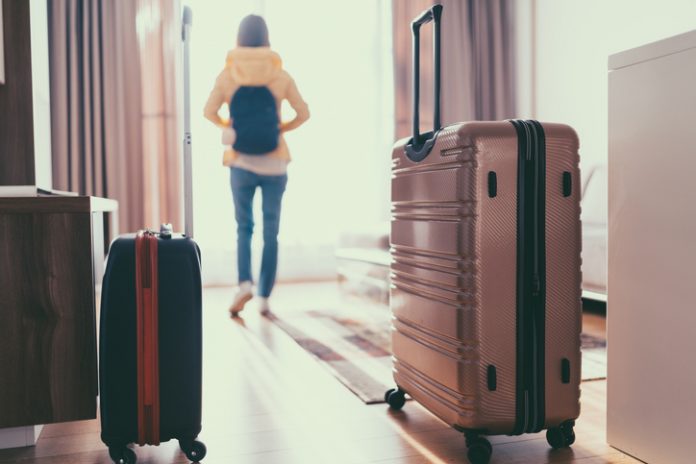As areas across the country begin to open up, travel activity is slowly returning and hotels that had previously been closed or operating with record-low occupancies are preparing to once again host guests. To assure travelers and employees that hotels are safe during this period of reopening and into the future, the American Hotel & Lodging Association (AHLA) recently introduced Safe Stay—industry-wide enhanced health and safety protocols. And to encourage travelers to plan and prepare for trips once restrictions are lifted, AHLA launched a new social media campaign with the hashtag #TakeMeBack. Chip Rogers, AHLA president and CEO, shares more about these campaigns and the steps the industry is taking to welcome back travelers.
How are the Safe Stay and #TakeMeBack campaigns working to address travelers’ concerns about hitting the road again?
AHLA wants to welcome back travelers when the time is right and help create peace of mind for both guests and employees. To do this, AHLA first started by announcing the Safe Stay initiative to enhance our already rigorous standards and bring a new level of transparency and confidence to the entire hotel experience.
We also believe that keeping our hotels clean and safe is just one element of providing the traveling public assurances that it is OK to travel. The other element is getting them thinking about it and planning for when the time is right. The latest polling indicates that leisure travel will come back first because Americans are looking forward to getting out and connecting with friends and families. To tap into that pent-up desire and help drive consumers closer to the planning stages, AHLA launched #TakeMeBack, a social media campaign to renew excitement in travel and show support to the industry during this difficult time by remembering the people and places that make the industry so special.
How can hotel owners and operators get involved in the #TakeMeBack campaign?
Everyone can participate in the campaign by sharing their favorite vacation photos on social media, reaching out to friends by sending a virtual postcard, and using the #TakeMeBack hashtag.
What will the guest experience look like under new health and safety standards?
Safe Stay was designed as an industry-wide, enhanced standard of health and safety protocols that can be adopted and implemented by any lodging establishment, from a bed and breakfast to a large branded hotel. Hotels of all types have always had cleanliness standards in place. This program is about taking it to the next level to meet the evolving needs and expectations of our guests, and each property must decide how best to implement it. Hotels have always prioritized the health and safety of both guests and employees and with Safe Stay, hotels will be ready to safely welcome back the traveling public when travel resumes. Some examples of how a guest experience might change are no-contact check-in; a focus on no-touch delivery and grab-and-go in food and beverage; social distancing for guests and employees; frequent cleaning and disinfecting of all areas of the hotel; and PPE available for all staff.
What will the return of guests mean to the industry?
Hotels are central to communities around the country. When it’s safe to travel, visiting and staying at hotels will be central to kickstarting the economy because hotels support more than one in 25 American jobs—8.3 million in total—and three out of every five hotels (61 percent) are small businesses, totaling more than 33,000 properties nationwide.
There is no better way to jumpstart the economy than staying in a hotel. For every $100 hotel guests spend on lodging, another $222 is spent at the destination, totaling $278 billion per year spent on transportation, dining, shopping, etc. at local businesses during stays.
While we are eagerly awaiting the day that travel safely resumes, we know that COVID-19 is estimated to be nine times worse than 9/11 for the hotel industry, so we are more committed than ever to helping our industry get through this time.











